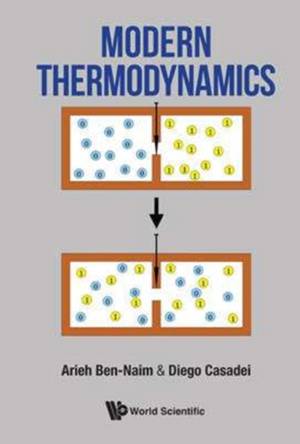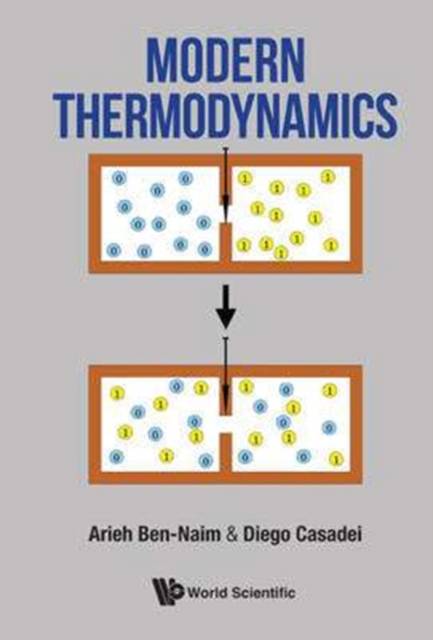
- Retrait gratuit dans votre magasin Club
- 7.000.000 titres dans notre catalogue
- Payer en toute sécurité
- Toujours un magasin près de chez vous
- Retrait gratuit dans votre magasin Club
- 7.000.000 titres dans notre catalogue
- Payer en toute sécurité
- Toujours un magasin près de chez vous
68,95 €
+ 137 points
Format
Description
This textbook introduces thermodynamics with a modern approach, starting from four fundamental physical facts (the atomic nature of matter, the indistinguishability of atoms and molecules of the same species, the uncertainty principle, and the existence of equilibrium states) and analyzing the behavior of complex systems with the tools of information theory, in particular with Shannon's measure of information (or SMI), which can be defined on any probability distribution. SMI is defined and its properties and time evolution are illustrated, and it is shown that the entropy is a particular type of SMI, i.e. the SMI related to the phase-space distribution for a macroscopic system at equilibrium. The connection to SMI allows the reader to understand what entropy is and why isolated systems follow the Second Law of Thermodynamics. The Second Llaw is also formulated for other systems, not thermally isolated and even open with respect to the transfer of particles. All the fundamental aspects of thermodynamics are derived and illustrated with several examples in the first part of the book. The second part addresses important applications of thermodynamics, covering phase transitions, mixtures and solutions (including the Kirkwood-Buff approach and solvation thermodynamics), chemical equilibrium, and the outstanding properties of water.This textbook is unique in two aspects. First, thermodynamics is introduced with a novel approach, based on information theory applied to macroscopic systems at equilibrium. It is shown that entropy is a particular case of Shannon's measure of information (SMI), and the properties and time evolution of the SMI are used to explain the Second Law of Thermodynamics. This represents a real breakthrough, as classical thermodynamics cannot explain entropy, nor clarify why systems should obey the Second Law. Second, this textbook offers the reader the possibility to get in touch with important and advanced applications of thermodynamics, to address the topics discussed in the second part of the book. Although they may go beyond the content of a typical introductory course on thermodynamics, some of them can be important in the curriculum chosen by the student. At the same time, they are of appealing interest to more advanced scholars.
Spécifications
Parties prenantes
- Auteur(s) :
- Editeur:
Contenu
- Nombre de pages :
- 372
- Langue:
- Anglais
Caractéristiques
- EAN:
- 9789813200760
- Date de parution :
- 14-12-16
- Format:
- Livre relié
- Format numérique:
- Ongenaaid / garenloos gebonden
- Dimensions :
- 152 mm x 229 mm
- Poids :
- 544 g







